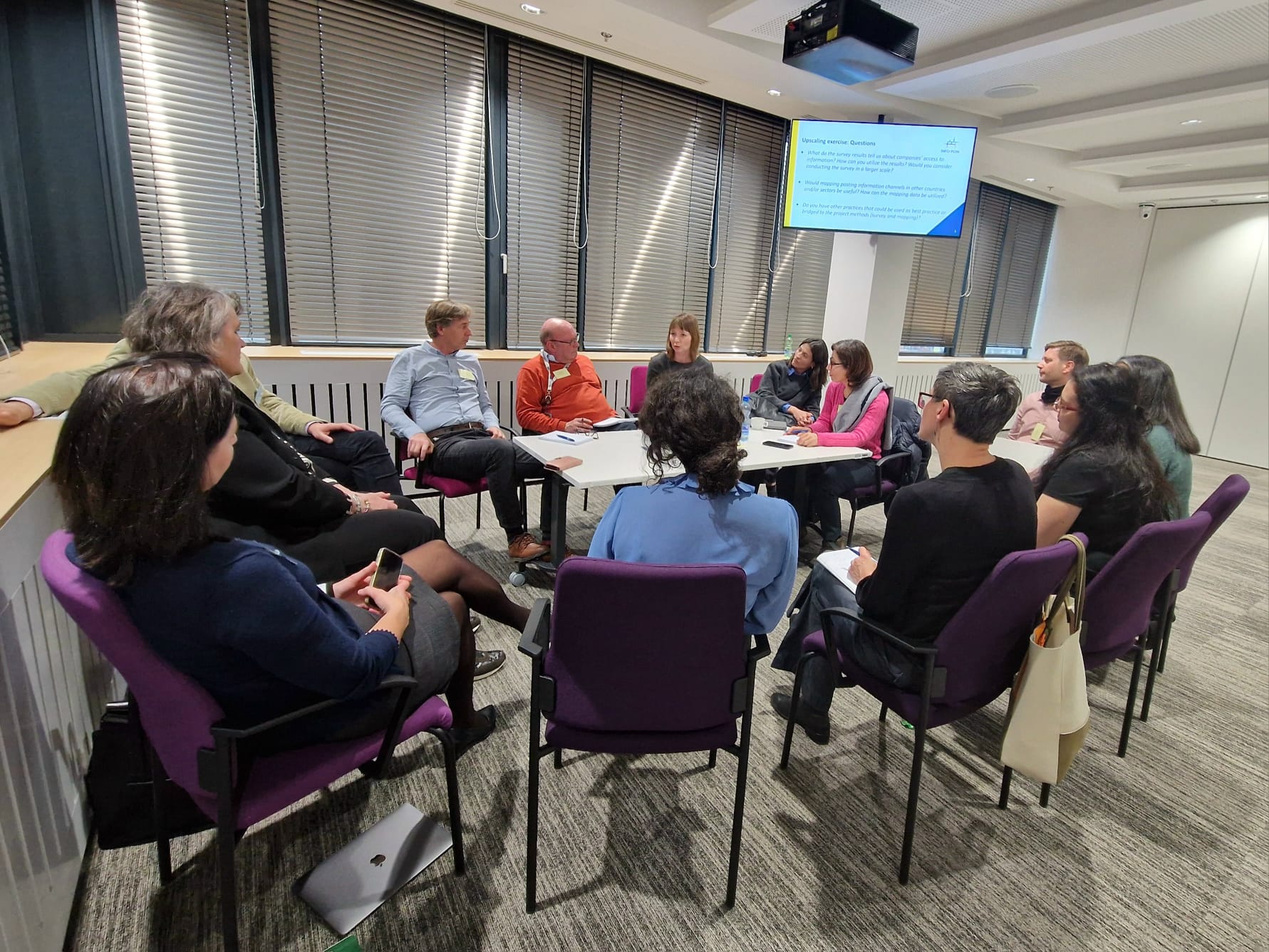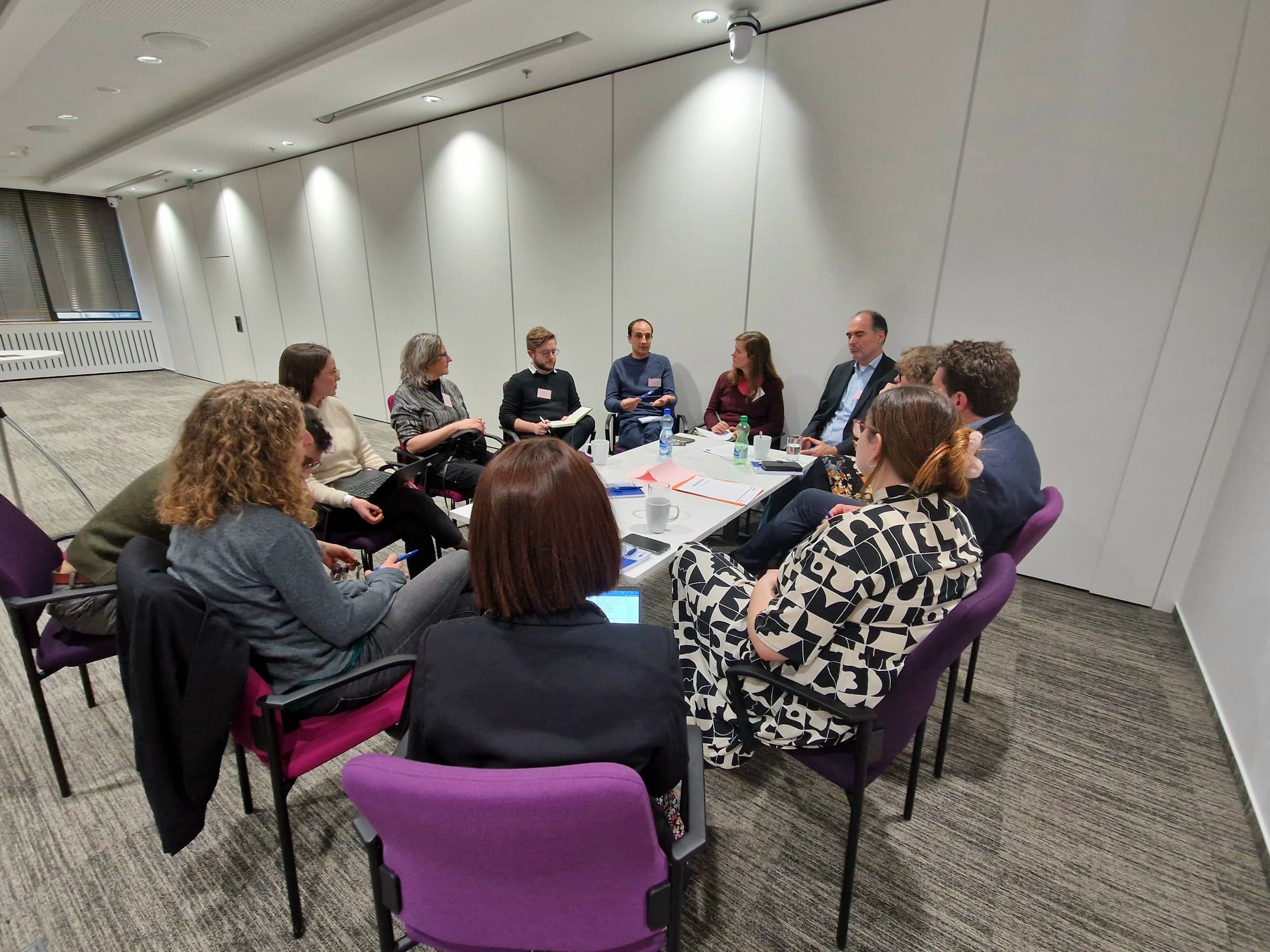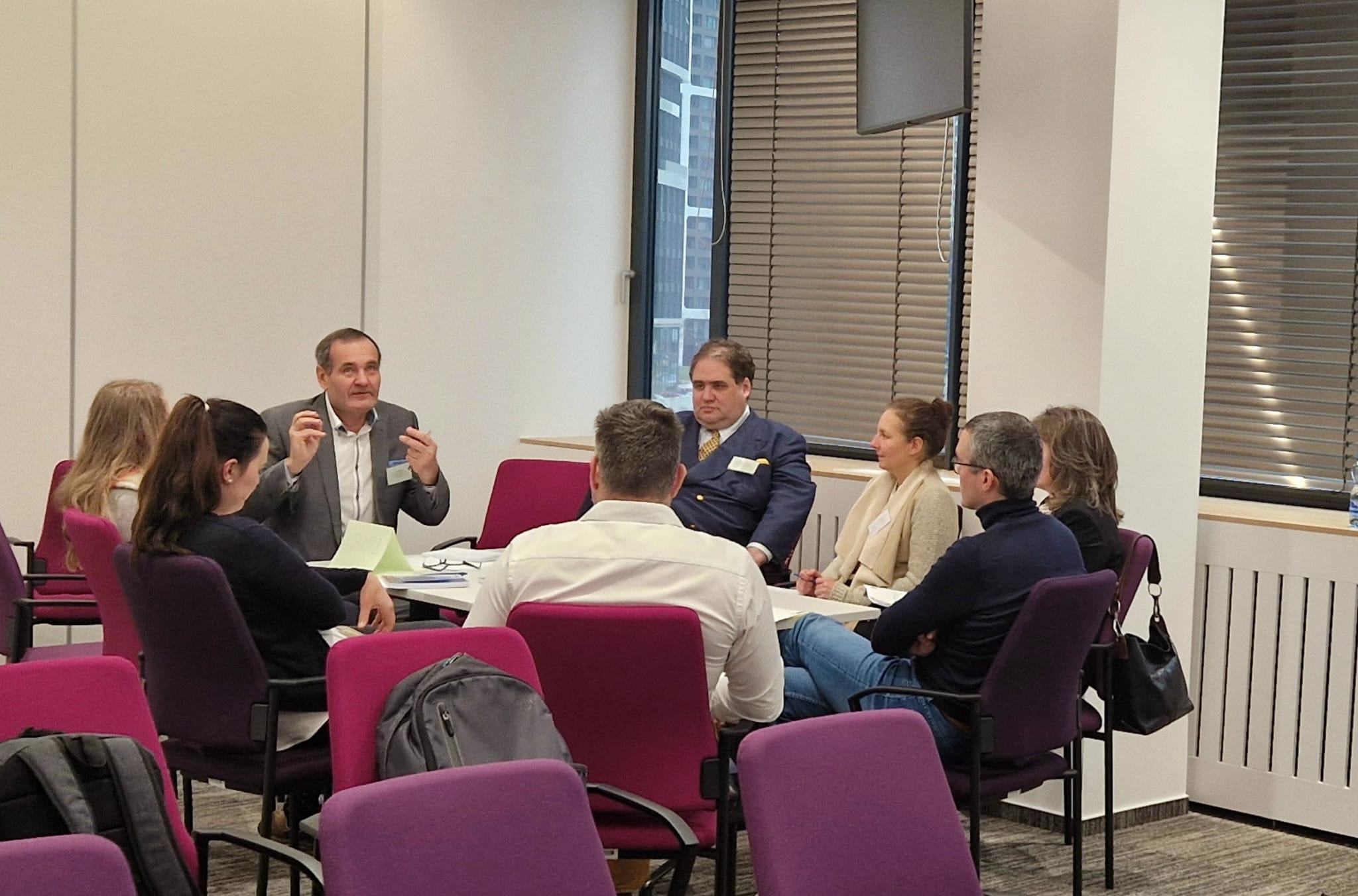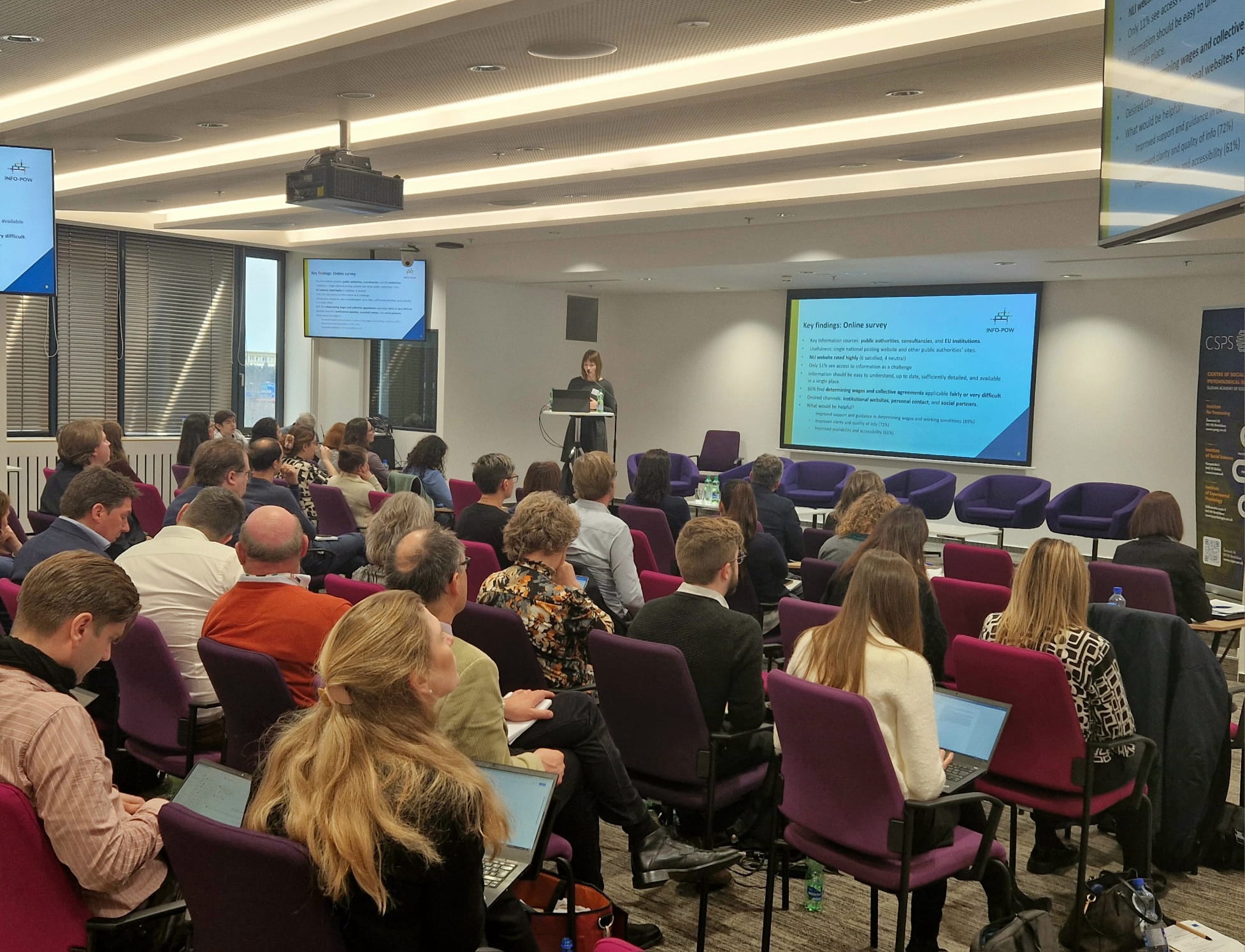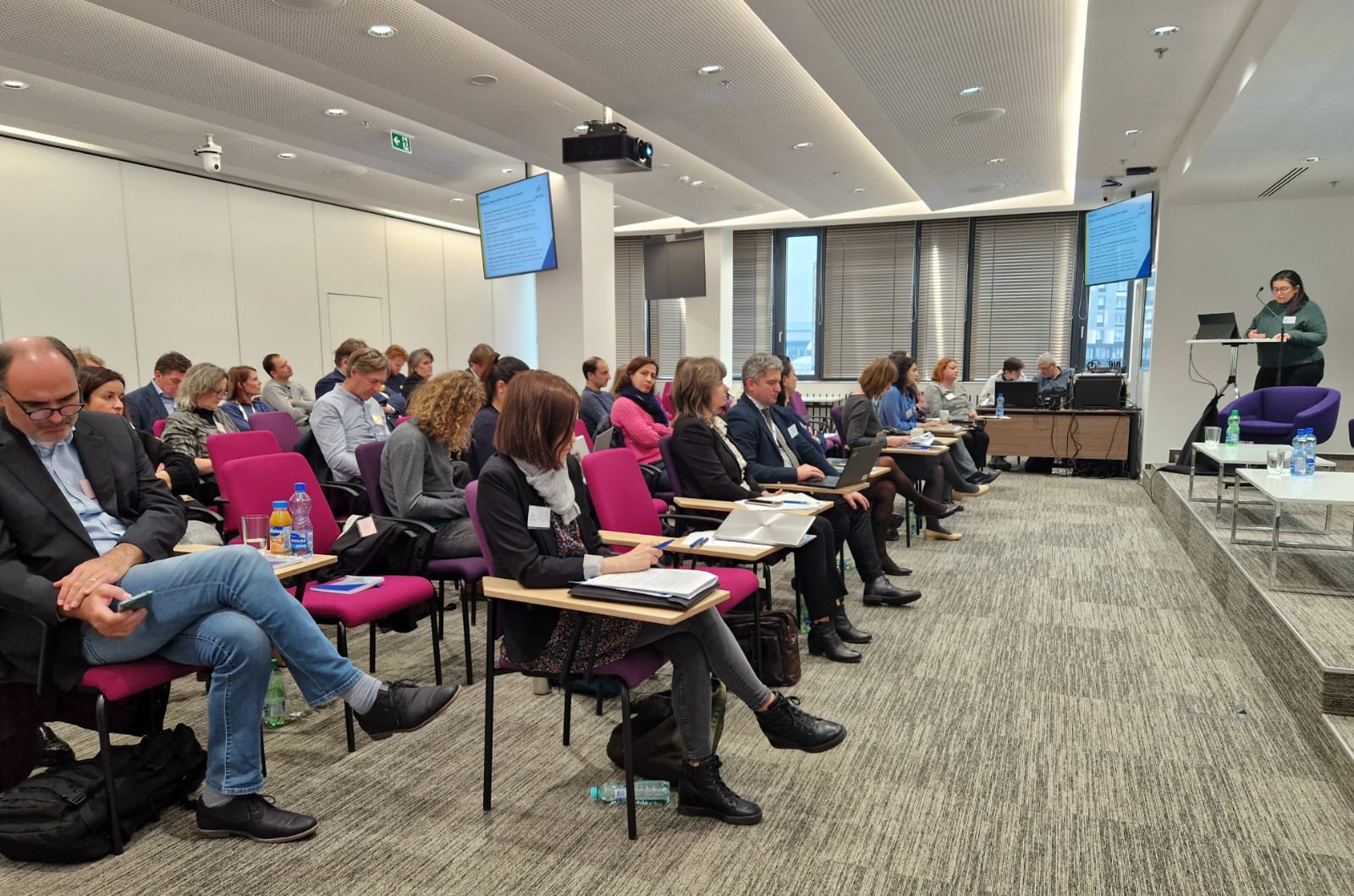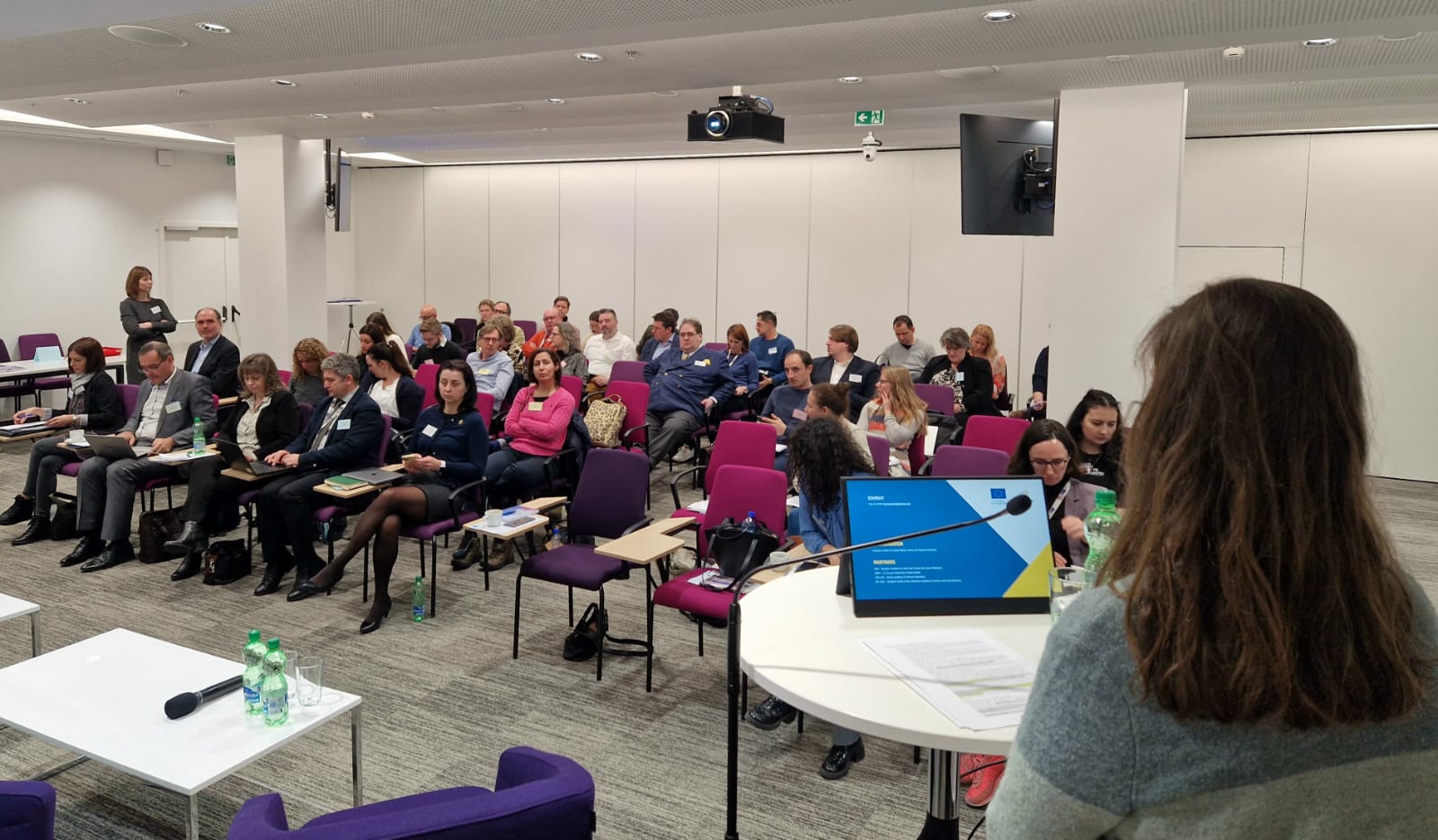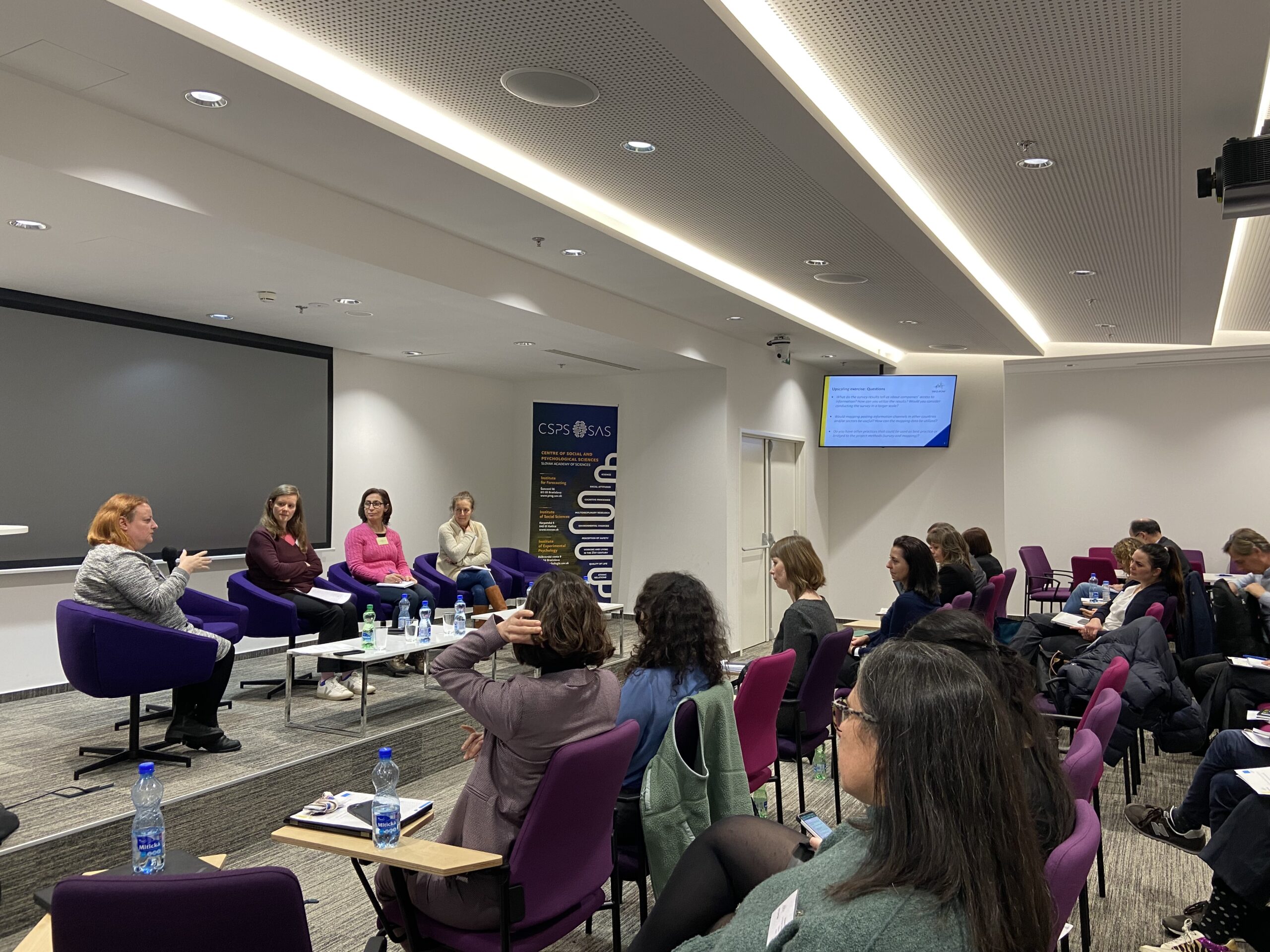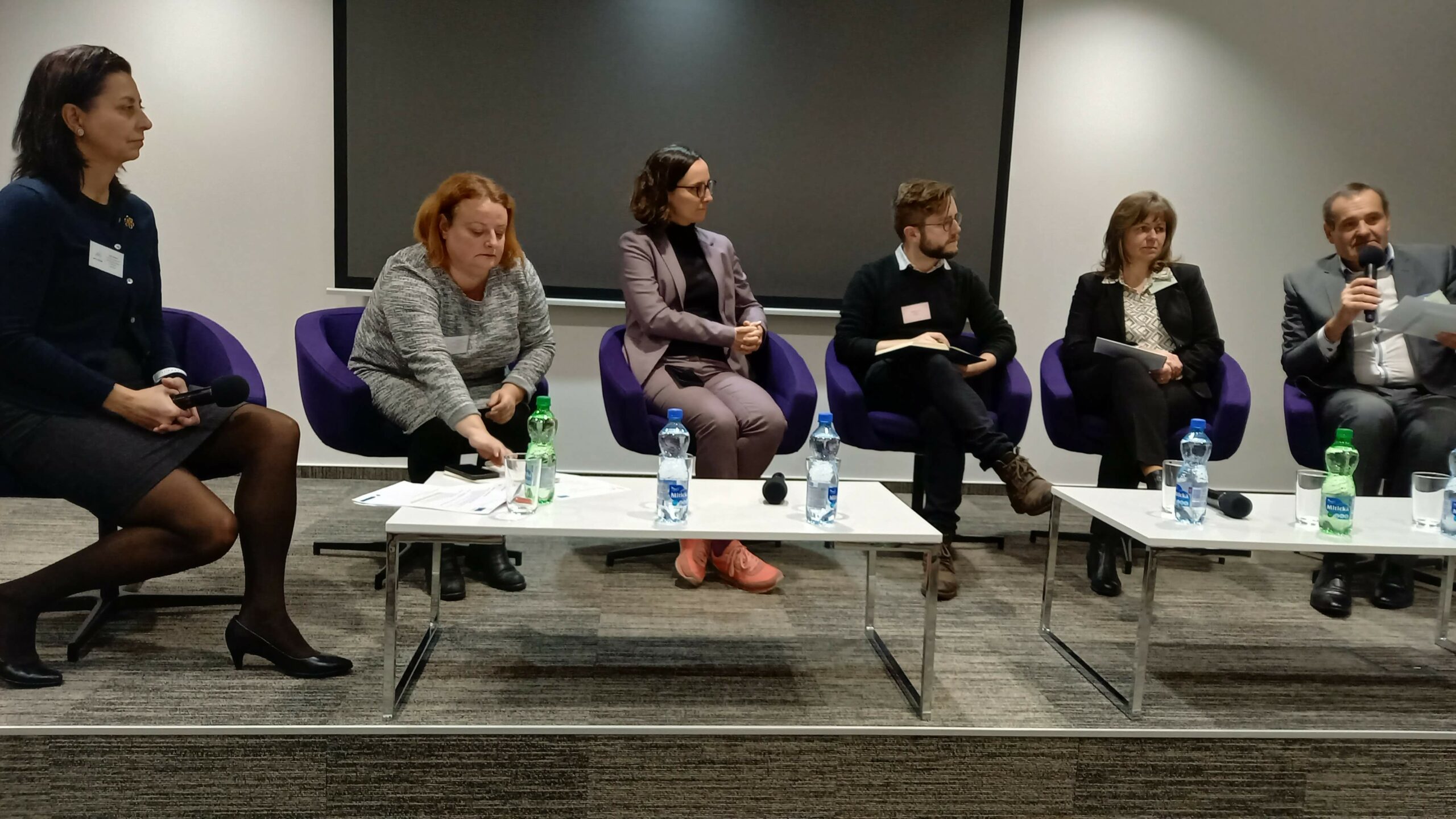
Final Conference of the ISKILL project in Brussels
5. January 2024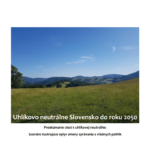
Carbon neutral Slovakia by 2050
22. February 2024Final Conference and Upscaling Event of the INFO-POW project in Bratislava
On January 17th, 2024, the Final Conference and Upscaling Event of the INFO-POW project was held at the headquarters of the European Labour Authority in Bratislava. In the INFO-POW project, challenges and needs of companies in the construction sector in relation to accessing and using information on the posting of workers were assessed and identified. The research project provides insights into how posting and user companies seek and use information, and the impact on their ability to meet their posting obligations.
The event was organised by the Institute for Forecasting of the Centre of Social and Psychological Sciences of the Slovak Academy of Sciences, which is one of the research partners of the project, and which was responsibility of the collection and analysis of data in the Slovak case study. The event was attended by approximately 50 participants representing transnational and national stakeholders, i.e. European institutions, social partners, national institutions, academic community, and chambers of commerce. The aim of the event was to discuss the findings and methodologies of the project, as well as its upscaling in view of upholding enforcement of existing EU and national legislation.
In the beginning of the session, Caroline Meumann (Head of Information and Services at the European Labour Authority) gave a keynote speech on the needs and gaps in access to information on posting and ELA activities in this area. The speech was followed by presentations from the project research team. Elif Naz Kayran, researcher at the European Centre for Social Welfare Policy and Research, presented the methodology and comparative findings of the mapping exercise. The methodology, findings and lessons of the pilot online survey were discussed by Lynn De Smedt from HIVA-KU Leuven.
Results of the national case studies were presented by researchers from partner institutions – Eszter Zolyomi (Austria), Frederic De Wispelaere (Belgium), Rossana Cillo (Italy), Lucia Mýtna Kureková (Slovakia), and Mojca Vah Jevšnik (Slovenia).
In the afternoon, participants were divided into groups in an interactive collaborative format in order to debate the possibilities for upscaling of the initiatives implemented during the project and to identify best practices in access to information on posting.
The last session of the conference was a stakeholder panel chaired by Ivana Studená - the Acting Head of the Institute for Forecasting CSPS SAS (Slovakia). The panellists were asked to comment on the findings of the project, discuss the opportunities for upscaling, and to reflect on the role of posting as an instrument of labour mobility in the common market. The panel consisted of:
Miriam Bellušová (Secretary General, Slovak Craft Industry Federation, and Director, European Builders Confederation)
Jonathan Cornah (Policy Officer, European Federation of Building and Wood Workers)
Sonila Danaj (INFO-POW Project leader, European Centre for Social Welfare Policy and Research)
Caroline Meumann (Head of Information and Services, European Labour Authority)
Pavol Kováčik (Vice-President SME, European Construction Industry Federation, and President, Association of Construction Entrepreneurs of Slovakia)
A key finding of the project is that companies face diverse barriers not only in accessing information, but also in interpreting and understanding it correctly. Across all countries, we identified opportunities for improvement in both the quality of information provided and the way in which posting information is delivered. In the Slovak context, a prominent finding was the significant fragmentation of available information, the high-level engagement of private and consultancy firms in the provision of information, as well as several shortcomings of the national posting website. The Slovak team identified the need for a stronger involvement of social partners in the posting agenda, including in the provision of information targeted at companies and individuals.
We would like to thank the participants for their presence at the event and their valuable insights. More information on the INFO-POW project and the related publications can be accessed on the website of the Institute for Forecasting and the European Centre.


